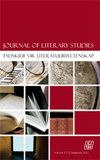J.M.库切的《耻辱》中对#MeToo运动的期待
IF 0.1
4区 文学
0 LITERARY THEORY & CRITICISM
引用次数: 0
摘要
在这篇文章中,我重新审视J.M.库切的《耻辱》,它经常被置于南非向后种族隔离生活过渡的背景下,并着眼于该国的真相与和解委员会,而不是从21世纪国际MeToo运动的角度来解读。我认为,回顾过去,《耻辱》既展示了与“我也是”运动的亲缘关系,又从后殖民时代的边缘预言性地勾勒出了这场运动在西方成为分水岭之前几十年的轮廓。《耻辱》讲述了一个在许多“我也是”(MeToo)运动中得到呼应的故事,描述了一个享有特权的白人男子在对一名非白人学生进行性剥削后,被公众曝光并失宠的过程。我的兴趣不在于大卫·卢里的潜在救赎;相反,我探索库切通过历史转变的时刻对制度化的性别和种族特权的持久性的暴露。我认为《耻辱》突出了自己未叙述的视角,预示着对白人异性恋霸权的有力挑战,这种霸权是我也是运动的特征,同时也暴露了南非和全球过渡正义话语中非白人和非西方创伤的永久边缘化。本文章由计算机程序翻译,如有差异,请以英文原文为准。
The Anticipation of #MeToo in J.M. Coetzee’s Disgrace
In this article, I reconsider J.M. Coetzee’s Disgrace, often interpreted in the context of South Africa’s transition to post apartheid life and with an eye to the nation’s Truth and Reconciliation Commission, by instead reading it in light of the international twenty first century MeToo movement. I contend that, in retrospect, Disgrace both demonstrates affinities with MeToo and proleptically envisions, from the postcolonial periphery, the contours of the movement decades before its forceful emergence as a watershed moment in the West. Disgrace tells a story echoed in many MeToo accounts, depicting the public exposure and fall from grace of a privileged white man following his sexual exploitation of a non white student. My interests lie not in the matter of David Lurie’s potential redemption; rather, I explore Coetzee’s exposure of the persistence of institutionalized gendered and racial privileges through moments of historical transformation. I argue that Disgrace’s highlighting of its own unnarrated perspectives anticipates the forceful challenge to a lingering white heterosexual hegemony that characterizes MeToo, while at the same time exposing the perpetual marginalization of non white and non Western traumas in discourses of transitional justice in South Africa and globally.
求助全文
通过发布文献求助,成功后即可免费获取论文全文。
去求助
来源期刊

Journal of Literary Studies
Multiple-
CiteScore
0.50
自引率
0.00%
发文量
0
期刊介绍:
The Journal of Literary Studies publishes and globally disseminates original and cutting-edge research informed by Literary and Cultural Theory. The Journal is an independent quarterly publication owned and published by the South African Literary Society in partnership with Unisa Press and Taylor & Francis. It is housed and produced in the division Theory of Literature at the University of South Africa and is accredited and subsidised by the South African Department of Higher Education and Training. The aim of the journal is to publish articles and full-length review essays informed by Literary Theory in the General Literary Theory subject area and mostly covering Formalism, New Criticism, Semiotics, Structuralism, Marxism, Poststructuralism, Psychoanalysis, Gender studies, New Historicism, Ecocriticism, Animal Studies, Reception Theory, Comparative Literature, Narrative Theory, Drama Theory, Poetry Theory, and Biography and Autobiography.
 求助内容:
求助内容: 应助结果提醒方式:
应助结果提醒方式:


